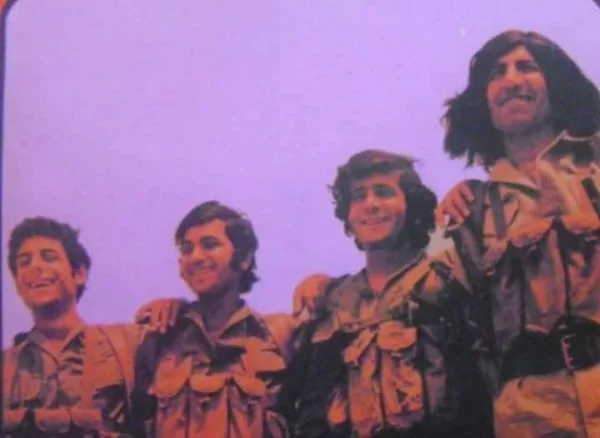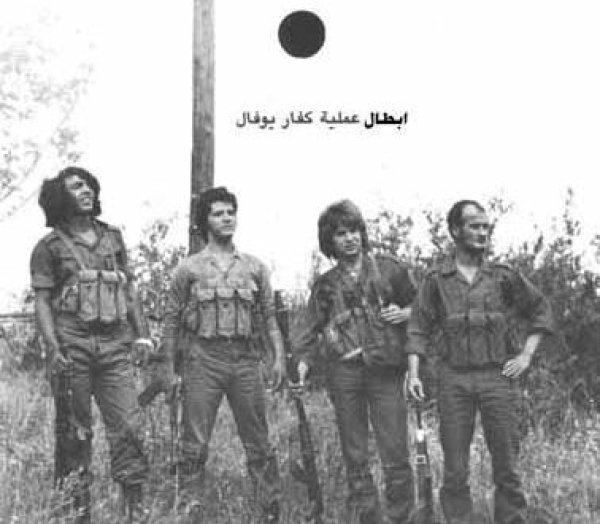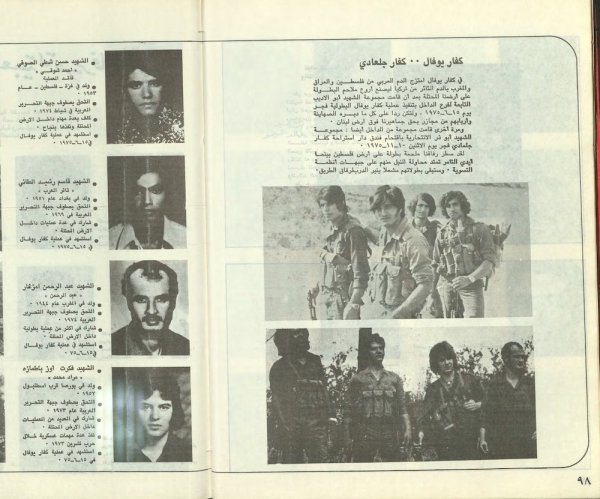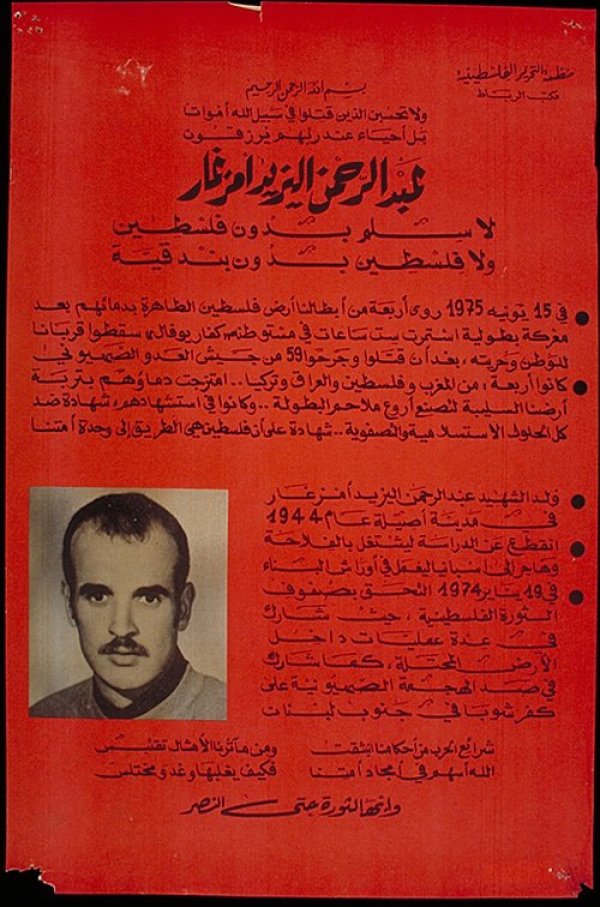
The Kfar Yuval operation took place on June 15, 1975, when a group called Abu Al-Adib, consisting of four Fedayeen from the Arab Liberation Front, managed to infiltrate the Kfar Yuval settlement located on the lands of the Apl al-Qamh village.
Leading the group was Palestinian Hassan Shati al-Soufi Ahmed Shouqi, along with Iraqi Kazem Rashid al-Tai, Thaer al-Arab, Moroccan Abderrahmane Amzgar, and Turkish Fikret Uzbatmaz. They successfully seized full control of the Kfar Yuval settlement, taking everyone inside as hostages. Subsequently, the Fedayeen issued a statement to the Zionist rulers and settlers:
"Do not trust your military theories about security and safe borders, as long as we hold guns in our hands and you continue to confiscate our land, there will be no security or stability for you. You will soon discover that your lives, entrusted to your rulers, are endangered, and they will risk them as they did before. Think well and face reason before arrogance. Your military does not care about your safety if your existence is threatened."
The demand of the Abu Al-Adib group was:
The release of several imprisoned Fedayeen, including Bishop Hilarion Capucci, Sheikh Mohammed Abu Tayr, and Japanese Kocho Okamoto.
When the Israeli authorities did not respond to these demands after the warning period, the Fedayeen carried out the execution of the hostages by detonating the settlement. The Fedayeen were martyred after fierce clashes with Israeli soldiers, which lasted for nearly six continuous hours, resulting in the killing of 23 Israeli soldiers and about 30 injuries, not to mention the casualties in the settlement, which exceeded 50 killed. Israel detained the bodies of the Fedayeen for over 33 years until Hezbollah liberated the martyrs' remains.
The perpetrators were:
Palestine: Hassan Shati al-Soufi, the leader of the operation (born in 1952 in Rafah), who joined the Arab Liberation Front in 1974, and the organization in Rafah was named after him in his memory.
Iraq: Kazem Rashid al-Tai (born in 1951), who joined the Arab Liberation Front in 1969.
Morocco: Abderrahmane Amzgar (born in 1944), who joined the Arab Liberation Front in 1974.
Turkey: Fikret Uzbatmaz (born in 1952), who participated in the October War and joined the Front in 1973.
P.S: "Fedayeen" is an Arabic term that translates to "those who sacrifice themselves." It refers to guerrilla fighters, typically associated with Palestinian or Arab nationalist movements, who engage in armed struggle and acts of resistance against perceived oppressors or occupying forces. Fedayeen are known for their commitment to their cause, often willing to undertake risky and self-sacrificial actions in pursuit of their objectives. They have been active in various conflicts in the Middle East, particularly during the Arab-Israeli conflict.




التعليقات - 1